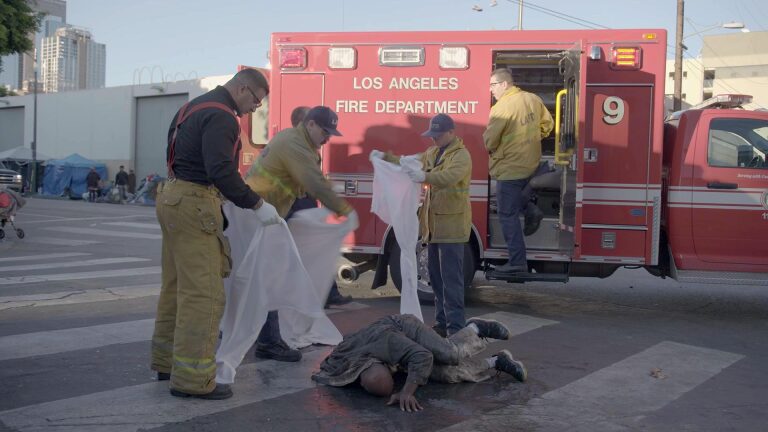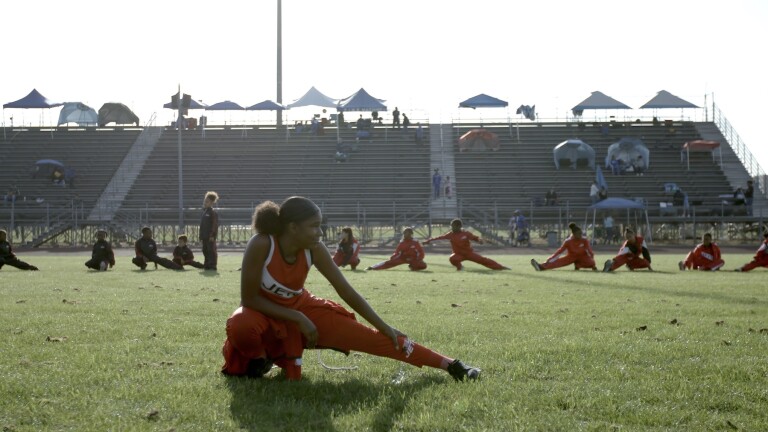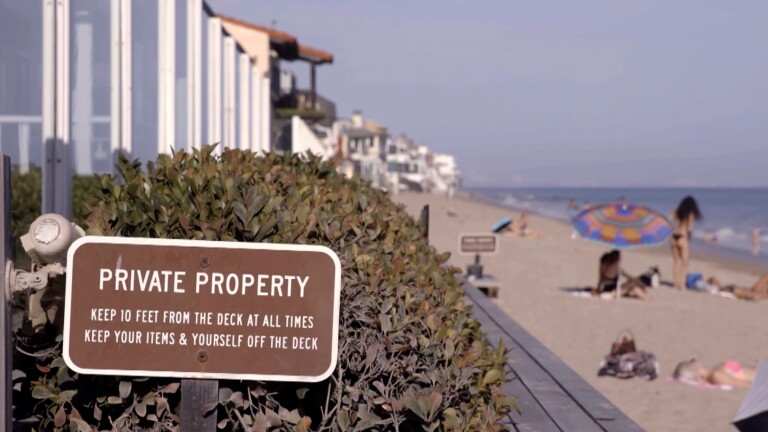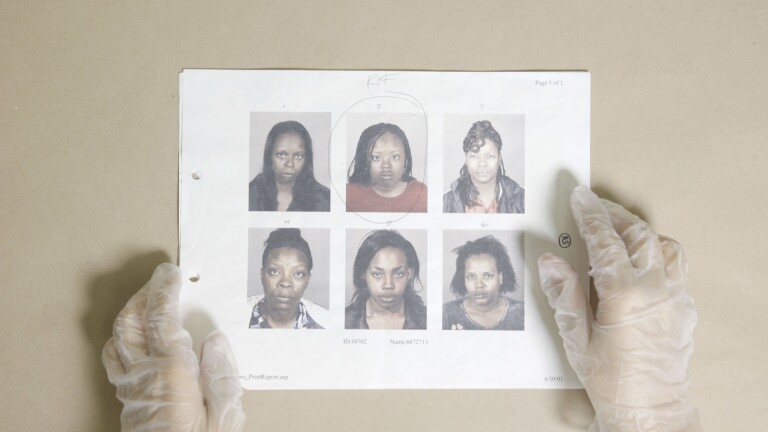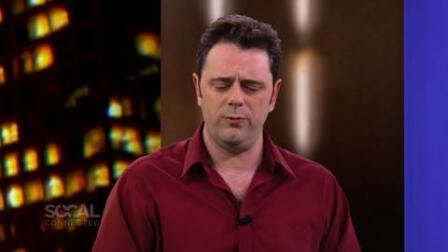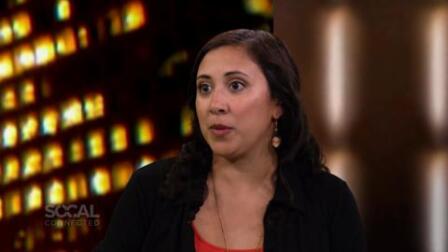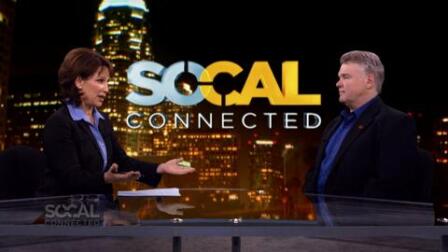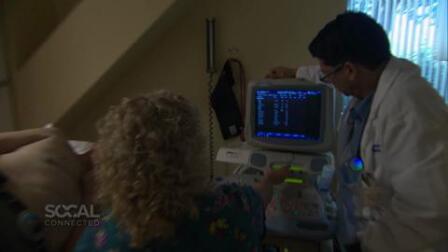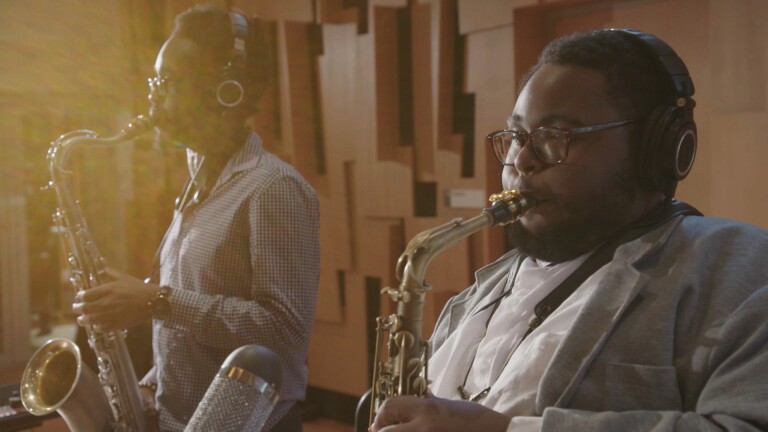Billboard Confidential Update: L.A. City Council Allowed Illegal Billboards to be Erected
They are impossible to ignore -- enormous, super-bright, in-your-face electronic billboards serving up an endless parade of of ads, day and night, all over Los Angeles. They sprouted up without warning a few years ago, and ever since, they have been a digital ground zero for some bitter fights. We've been following the billboard saga from the start. As an appeals court prepares to rule in a major case, we take a look at where things stand. This high-tech controversy has been moving at stone-age speed.
Vince Gonzales: You could call this story 'the signs that ate Los Angeles.' And for us, it's the never-ending story. For over four years, "SoCal Connected" has been reporting on the city of L.A.'s attempts to manage its estimated six thousand billboards. Legal, illegal, permitted, non-permitted, video and vinyl.
Big and bright. They come in all shapes and sizes and the city council, the highest paid in the nation, seems powerless to regulate them. In the very few cases the city has identified an illegal billboard, nothing seems to happen.
Keith Stephens/Owner of L.A. Outdoor: It's the easier target and it looks good to go after somebody.
Gonzales: In 2008, we interviewed Keith Stephens, owner of a small billboard company. At the time, the city charged him with illegally putting up this billboard in downtown L.A. It's been four years and the billboard is still there. Keith is still a free man. He finally has a pretrial hearing at the end of this month; nearly four years after his charges were filed. It's a head scratcher for Dennis Hathaway, whom we first met in 2008.
Hathaway/Coalition to Ban Billboard Blight: Essentially, I talked to you four years ago. Nothing has really changed. All of the illegal billboards in the city are still up and they are making the billboard companies money. In a sense, nothing has really changed.
Gonzales: We met Hathaway again here on Pico Blvd in West LA, where the first shot was fired in L.A.'s long billboard wars, a war that soon might end with digital signs going dark all over the city. But first, a refresher.
Despite a ban on new billboards or alterations to current ones, in 2006 the city council approved a deal with three major billboard companies - CBS, Clear Channel and Regency. All of their illegal billboards were made legal, and CBS and Clear Channel were allowed to convert over 800 billboards to new digital signs.
Also, the city permit fee was slashed from $314 to just 186 bucks -- a small price to pay for a new digital sign that can earn $150,000 a month in ad revenue. Born out of that agreement was this Clear Channel digital sign in West L.A., the very first one to go up under the deal. But this billboard across street wasn't allowed to go digital.
Its owners Summit Media cried "foul." Why were Clear Channel and CBS allowed to go digital but others can't? This billboard street fight quickly ended up in court. The first line of Summit Media's lawsuit against the City of L.A., CBS and Clear Channel says, "This is a simple case."
Summit Media claims the city gave the two companies "special privileges" when it allowed only them to go digital. And under oath, a city official admitted conversions to digital were prohibited at the time of the agreement. The city made the deal with CBS and Clear Channel anyway. And that was illegal, according to a 2009 ruling by L.A. Superior Court Judge Terry Green. He also called the deal "poison."
Hathaway: The city council should have known. They can't give special rights to two billboards companies and shut out all of the other billboard companies in the city. I don't know what they were thinking!
Eric Garcetti/L.A. City Council member: When people say, "What is the one biggest regret you have during your time in office," I actually point to that settlement.
Gonzales: Council member Eric Garcetti voted for that 2006 deal. He says he didn't read the fine print.
Garcetti: It was a very thick settlement and nobody read all the way to the end. If I had known that, I absolutely wouldn't have voted for that.
Gonzales: So the CBS/Clear channel deal has stood the test of time and made the companies tens of millions of dollars, but those millions could have gone away if the Court of Appeals judge in the Summit Media case ruled against them. Perhaps in an effort to get in front of that ruling, which was expected on October 30th, a Clear Channel lobbyist met with Council Member Ed Reyes. With the support of fellow Council Member Paul Krekorian, Reyes presented this motion. The vaguely worded one-pager asked the council to "act now to fix the billboard problem and fast." Reyes wanted to form a working group and take action by October 30th.
Garcetti: I didn't know what the rush was. After all of these years, why would we rush with just a couple of weeks before some court decision legalize all the digital billboards that are out there right now? There's only two companies that have those, that seemed to be unfair not only from a competitive standpoint, but also to put those in permanently?
Gonzales: The motion was co-written by a Clear Channel lobbyist. Councilman Reyes makes no apologies for that.
Reyes: The truth is we as policy makers are putting forward language that was that did come from the billboards, but that language speaks to being inclusive.
Gonzales: And he says, "Who better to consult on regulation on the industry than the industry itself?"
Reyes: We don't' have specialists in the industry who understand the industry the way the industry does.
Hathaway: Why are the billboard companies or billboard lobbyists writing their legislation?
Gonzales: This isn't the first time "SoCal Connected" has seen lobbyists write policy for the city of L.A. Last year, we reported lobbying group Latham and Watkins helped draft exemptions to the city's sign laws. If approved, it would have opened L.A.'s parks to ads. Back at City Hall, Council Member Krekorian was offended by this anonymous email sent to the council slamming the city's handling of billboards.
Krekorian: Well, if that is the kind of sentiment that we are dealing with, I think none us should be part of accommodating that kind of attitude towards the policy.
Gonzales: He then took to Facebook. Krekorian accused anti-billboard activists of using a "screeching voice" and participating in "extremism." This time, it was Hathaway who was offended.
Dennis: To be called an "extremist," like I said, is extremely insulting, and I think it is a way, unfortunately, for the councilman to discount the input. To say it's not worth listening to. Don't' listen to it. It's coming from extremists.
Gonzales. As for the motion, it stalled and October 30th came and went, but not without bad news for Clear Channel and CBS.
Dennis: The Court of Appeals ruled that the digital billboards were put up there pursuant to an illegal deal, the settlement that he city made in 2006, should have been revoked. In other words, that billboard should be turned off!
Gonzales: The Court of Appeals ruling is tentative. A final decision is expected in the next few weeks. If the city, CBS and Clear Channel lose, it could mean all of those digital billboards in L.A. will have to be turned off. But that's if they can find them. As we first reported in 2008, the city has never had a complete inventory of billboards. Nobody really knows where they all are or which ones are legal.
While researching her dissertation on billboards, USC student Lisa Sedano went to the city and asked for a complete billboard inventory. She says they wouldn't give it to her, so she sued.
Sedano: When I explain the story to people, they don't seem to understand that the city has a complete inventory and won't release it, because it makes no sense. It's not like it's nnational secrets here. It's a list of billboards, and their permit history. That's it.
Gonzales: Lisa settled with the city, and she has the complete list. She has a theory about why L.A. has fought its release.
Sedano: If the city has a complete and public list of illegal billboards, it will increase the pressure on the city to do something about them.
Gonzales: Sedano also thinks city hall has a tough time resisting the power of the billboard companies, who have spent millions lobbying City Hall over the past ten years.
Garcetti: I don't feel any financial pressure from them; they are a presence here, but this is our city. We define what is on our streets. We define what is in our neighborhoods, and people send us here to do their business not the billboard companies' business.
Gonzales: But take a look around L.A., and you can see why some say this city belongs to the billboards. They just have to live in it.

